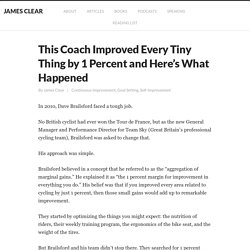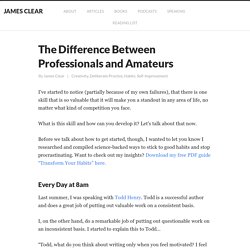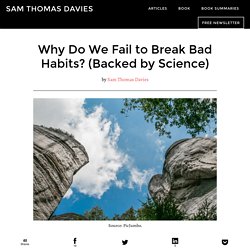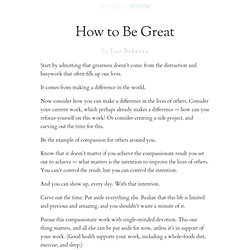

Intention, No Unrealistics Goals. I came to meditation after years of trying to improve my life.

I’d been stuck in depression for a long time, and meditation was the latest in a long line of wheezes meant to relieve the gloom. However, something curious happened when I followed the instructions given—I discovered it was impossible to meditate and struggle at the same time. Struggle still happened, for sure, but this was when I was “trying to meditate,” adding my own expectations or goals to the practice, or “not bothering to meditate,” just letting my habits of mind take over. When I actually meditated (staying present, opening to experience, coming back when the mind wandered), the sense of trying, hoping, wanting things to be different, or of giving in to despondency, hopelessness and fear—all this began to fall away. Instead came glimpses of the peace I had been desperately searching for. I often see the same thing now in beginning practitioners. The Scientific Argument for Mastering One Thing at a Time.
Many people, myself included, have multiple areas of life they would like to improve.

In 2010, Dave Brailsford faced a tough job.

No British cyclist had ever won the Tour de France, but as the new General Manager and Performance Director for Team Sky (Great Britain’s professional cycling team), Brailsford was asked to change that. His approach was simple. Brailsford believed in a concept that he referred to as the “aggregation of marginal gains.” He explained it as “the 1 percent margin for improvement in everything you do.”
His belief was that if you improved every area related to cycling by just 1 percent, then those small gains would add up to remarkable improvement. They started by optimizing the things you might expect: the nutrition of riders, their weekly training program, the ergonomics of the bike seat, and the weight of the tires. But Brailsford and his team didn’t stop there. Brailsford believed that if they could successfully execute this strategy, then Team Sky would be in a position to win the Tour de France in five years time.
To Make Big Gains, Avoid Tiny Losses. In many cases, improvement is not about doing more things right, but about doing less things wrong.

To understand what I mean, we need to take a trip to Japan. The Curious Case of Japanese Television Sets In the decades that followed World War II, the manufacturing industry in America thrived. For years, American companies grew in size and profitability—even though they produced many products of average quality. This gravy train began to slide off the tracks in the 1970s. “Japanese firms emphasized what came to be known as “lean production,” relentlessly looking to remove waste of all kinds from the production process, down to redesigning workspaces, so workers didn’t have to waste time twisting and turning to reach their tools.
Business buzzwords like Kaizen, Lean Production, and Process Improvement are so ubiquitous today that it can be easy to gloss over the subtlety of the Japanese strategy. What Makes The Difference Between Professionals and Amateurs? I've started to notice (partially because of my own failures), that there is one skill that is so valuable that it will make you a standout in any area of life, no matter what kind of competition you face.

Why You’re Unhealthy, Stuck, and Miserable. I hear from people all the time who feel stuck in bad jobs, bad habits, and bad relationships.

And when it comes down to it, I have one single piece of advice. Courtesy of IStock/Pinkypills It’s pretty simple, actually. Ready? Here it goes: Stop thinking about it. Why Do We Fail to Break Bad Habits? We all want to improve our health, our wellness and our happiness.

But in order to achieve our goals, we need to break bad habits and form good ones that actually stick. Yet despite our good intensions, we often fail to act on them and even if we do, it’s ephemeral. There’s no doubt about it: change is hard. The Akrasia Effect: Why We Don’t Follow Through on Things. By the summer of 1830, Victor Hugo was facing an impossible deadline.

Twelve months earlier, the famous French author had made an agreement with his publisher that he would write a new book titled, The Hunchback of Notre Dame. Instead of writing the book, Hugo spent the next year pursuing other projects, entertaining guests, and delaying his work on the text. Hugo's publisher had become frustrated by his repeated procrastination and responded by setting a formidable deadline. Goal Setting. Guided Imagery. Triggers. A Guide to Changing Self-Destructive Behaviors. How to Be Great. By Leo Babauta Start by admitting that greatness doesn’t come from the distraction and busywork that often fills up our lives.

It comes from making a difference in the world. Now consider how you can make a difference in the lives of others. Consider your current work, which perhaps already makes a difference — how can you refocus yourself on this work? Or consider creating a side project, and carving out the time for this. Be the example of compassion for others around you.
Know that it doesn’t matter if you achieve the compassionate result you set out to achieve — what matters is the intention to improve the lives of others. And you can show up, every day. Carve out the time. Pursue this compassionate work with single-minded devotion. Practice until you’re amazing.